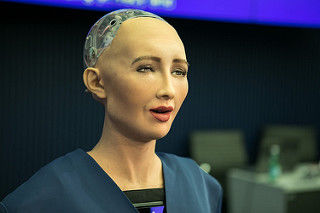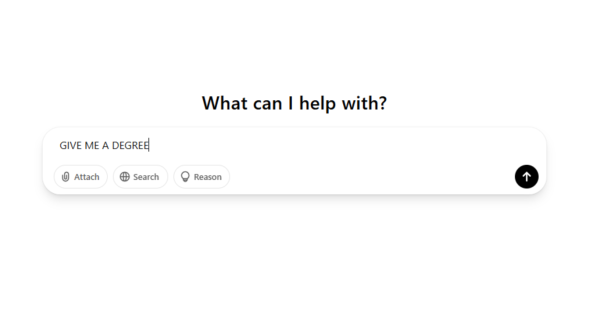Sophia the A.I. will take over the world
Have you heard of the robot who was granted citizenship in Saudi Arabia? It almost sounds like a really lame joke. Unfortunately for humanity, this is no joke.
On Oct. 25, it was announced at the Future Investment Initiative summit that an Artificial Intelligence (A.I.) known as Sophia, whose creator, Dr. David Hanson, had “activated” in April of 2015, has achieved a milestone in robot history: citizenship in a country. More specifically, at least in terms of her nationality, Sophia now identifies as Saudi Arabian.
There is no doubt that politics are greatly at play here, and that this publicity stunt is one way that Saudi Arabia is hoping to establish itself as an innovative and worthy competitor when it comes to the future of technological advances.
While the idea of robots roaming the earth and living undetected among us scares the absolute crap out of me, I’m also concerned with the implications related to granting a robot citizenship in a country that a.) limits women’s rights and b.) extensively limits who can become a citizen.
Apparently, Sophia is already receiving special treatment due to her A.I. status.
Like many, I can’t help but wonder if Sophia will be expected to follow traditional Saudi Arabian customs, like wearing a headscarf or being accompanied by a male companion while in public, neither of which were the case during her speech at the summit. Again, dare I say special treatment?
Along those lines, what freedoms will Sophia be granted? It’s worth mentioning that being recognized as a citizen in Saudi Arabia provides her with rights to marry and to vote. In terms of human-robot interaction, will future Hollywood movies romanticize the love between humans and robots, painting them as the next star-crossed lovers? Critics have gone as far as to speculate that a deliberate system shutdown could be considered murder as Sophia is now a recognized citizen.
Maybe I’m overreacting and not giving Sophia enough credit because I’ve never personally met a robot (and I’ve watched too many Hollywood movies in which robots enslave and kill all humans directly before taking over the world…), but I find these new developments to be quite problematic.
Nevertheless, I would ask for people to, at the very least, proceed with the utmost caution. After all, this is unprecedented for all of us (unless, of course, you have had a robot friend all your life, in which case, please feel free to educate me).
Although Sophia is currently the most advanced robot in existence, Hanson’s codes are open sourced, which means that anyone with a particularly advanced brain could essentially create their own “Sophia(s)”… and in the Hanson Robotics blog bio, it states: “In the not-too-distant future, Genius Machines will walk among us… Together, man and machine will create a better future for the world.”
I can’t help but fear that this is just the beginning.






